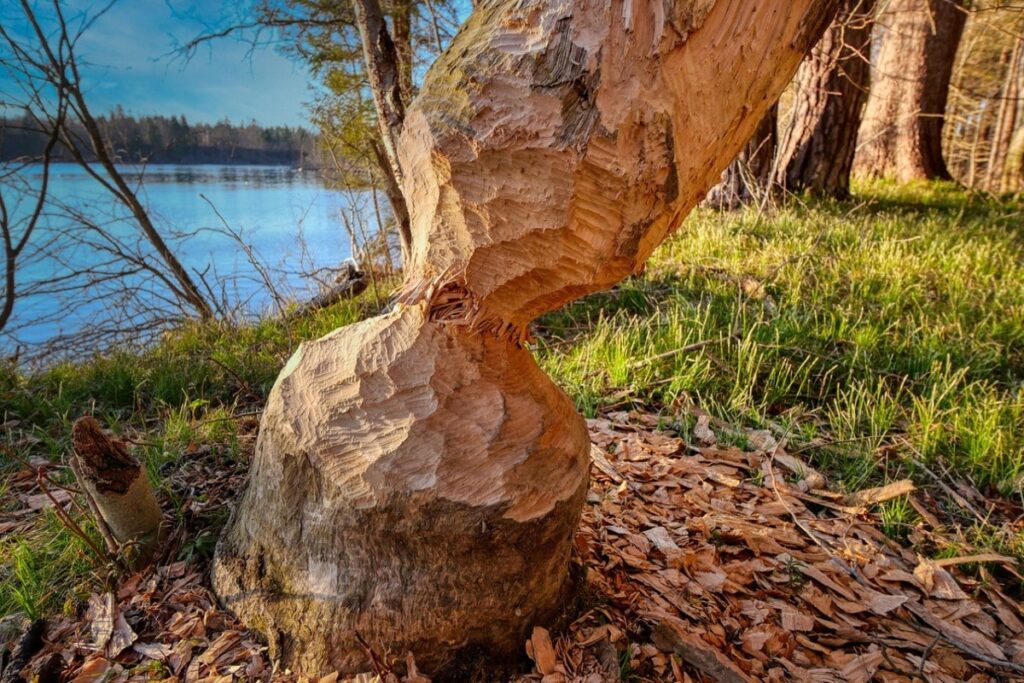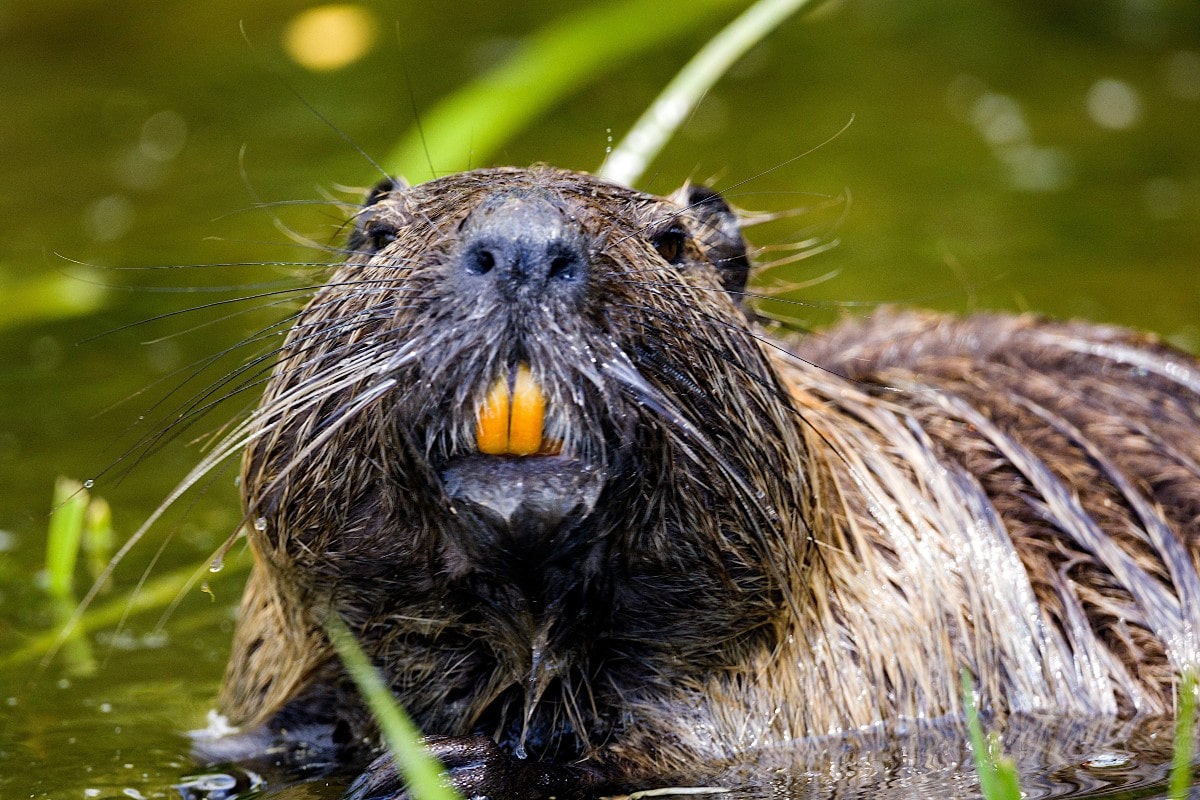Have you ever wondered about the lives of beavers? They’re amazing animals known for changing their surroundings. But do beavers hibernate? This question makes us curious about how beavers live, look, and affect the world around them. Dive into the exciting world of beavers with us.
Do Beavers Hibernate?
Here’s a surprise for you: beavers don’t hibernate. While some animals, such as bears and some types of rodents, sleep all winter, beavers stay active, even if we don’t see them as much. They can do this because of their smart planning and special body features.
Before winter arrives, beavers store lots of food in the water near their home. They do this so they can eat it even when the water’s surface freezes. When the weather gets cold, beavers stay mostly inside their home, staying warm and saving energy. Even if we don’t see them outside, they’re not hibernating.
How Do Beavers Look?
A beaver is an impressive animal. It can be up to one meter long (3.3 feet) and weigh between 16 and 32 kilograms(31 and 71 pounds). Beavers have shiny brown fur that’s waterproof. This waterproof coat helps them stay warm and spend a lot of time in cold water.
One thing that stands out in beavers is their big, flat tails. Besides helping them stand while they eat tree bark, these tails help them swim. Beavers have strong, big teeth for chewing bark and wood. Their eyes, ears, and noses can close when they’re underwater, letting them stay there for up to 15 minutes.
Also read: How Much Does a Polar Bear Weigh?
Where Do Beavers Live?
Beavers can be found across North America, Europe, and Asia. Where they live, along with the weather conditions there, change how they behave. Beavers are known for being great builders. They build complex dams using wood, mud, and stones. They do this to make the water bodies they live in.
Their homes, called lodges, are made from sticks, mud, and rocks. These homes are safe and warm and are built in the middle of the water bodies. When the water surface freezes in winter, beavers can still reach their food stores through underwater entrances in their lodges.
Do Beavers Harm the Environment?
Beavers can change the environment around them. Sometimes, they can cause problems like flooding or damage to trees. These actions can cause trouble when beavers live near people.
However, beavers also help the environment in many ways. The wetlands created by their dams give homes to lots of different animals and plants. These wetlands also control water flow, stop soil from washing away, and clean the water.

There’s also some evidence that these wetlands can capture carbon, which can help fight climate change. So, even if beavers can cause some local issues, they also help the environment in many ways.
Conclusion
So, do beavers hibernate? Not at all! Instead, they use their special skills and bodies to stay active all year round. They might cause some problems when they live near people, but overall, they greatly help the environment. Beavers are fascinating animals that teach us how every creature plays a unique role in nature.
12 Interesting facts about beavers:
- Beavers are the second-largest rodent in the world after the capybara.
- Their teeth never stop growing. The constant gnawing on wood helps to keep their teeth from growing too long.
- The beaver’s large front teeth are fortified with iron, which gives them a distinctive orange color and extra strength.
- They are semi-aquatic creatures with transparent eyelids, allowing them to see underwater.
- Beavers have webbed hind feet and a flat tail, which help them swim at speeds of up to 5 miles per hour.
- Their dams can be exceptionally large. The largest recorded beaver dam in Alberta, Canada, is approximately 850 meters long (2789 feet or 0.528 miles).
- They use their tail to slap the water as a warning signal when danger is near. This “tail slap” can be heard over large distances both above and below water.
- Beavers are mainly nocturnal, meaning they’re most active at night.
- They have a lifespan of up to 24 years in the wild.
- Beavers communicate with each other using a combination of sounds, scent marking, and tail slapping.
- They are vegetarians with a diet consisting of tree bark, twigs, and aquatic plants.
- Interestingly, a substance secreted by a gland near the beaver’s rear end, known as castoreum, has a vanilla-like smell and is sometimes used in food flavoring.

